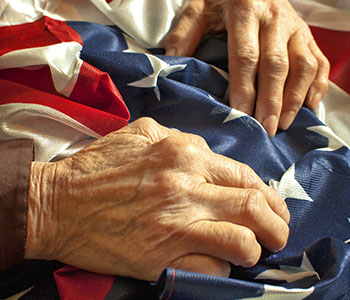Call Now To Schedule A Complimentary 15-minute Phone Consultation (248) 220-6085

Post-traumatic stress disorder, commonly known as PTSD, has become a widely-discussed topic in mainstream news. Most of the time, the stories are referring to younger vets coming back from war—those who have bravely served more recently in Afghanistan and Iraq. But less frequently discussed is the fact that older Veterans also suffer from PTSD long after they have returned home and years after combat, sometimes even decades later! An entire older generation of Veterans from World War II, Korea, and Vietnam are now showing signs of PTSD.
During midlife, these Veterans have held down careers, had families, established homes and friendships in their communities. From all accounts, they seemed to have moved past their dark days in the war and adjusted to life outside of the military. But researchers are finding that the aging process for some can trigger PTSD.
For instance:
You can help your loved ones with PTSD in a number of ways. The essentials of Veteran home care begin by encouraging the vets in your life to eat well, exercise, volunteer, and engage in activities that allow them to feel safe and strong. These tactics are usually effective because Veterans who feel like they’re not as strong and active as they once were often experience worse symptoms.
It’s also useful to help Veterans connect with those who have similar experiences, whether that’s meeting with another Veteran, or joining a support group for others who suffer from PTSD. These groups are excellent at teaching Veterans healthy ways of relaxing and avoiding PTSD symptoms. It may be useful to seek professional help. Over the past few decades, a number of proven treatments have been developed for PTSD. A doctor can refer you to a qualified therapist that will have experience in assisting Veterans in living with PTSD.
Additionally, Veteran’s assistance is generally best served by informing friends, family, and other caregivers about PTSD. This can help those individuals understand the significance of wartime experiences, and help them to understand the source of the Veteran’s emotional problems. Being informed about PTSD can help those people to provide better support, and to avoid accidentally triggering PTSD memories.
Much of the research on PTSD in older adults has been conducted with older Veterans. For many older Veterans, especially combat Veterans, memories of wartime experiences can be upsetting long after completion of military service. Compared to the general population, older Veterans have higher rates of both lifetime trauma exposure and PTSD due to combat and warzone-related exposures.
If you have a family member or friend who served during a time of war, especially a senior, visit or talk with them regularly. Keep up to date on their lives and make sure they are remaining as active as their health will allow.
If you need additional information about possible resources available for war-time Veterans, contact our office today.